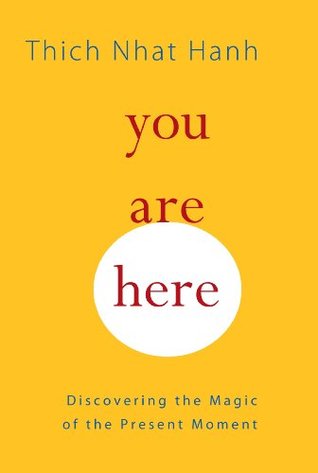More on this book
Community
Kindle Notes & Highlights
Started reading
September 5, 2022
Breathe in and tell yourself that a new day has been offered to you, and you have to be here to live it.
Do not fight against pain; do not fight against irritation or jealousy. Embrace them with great tenderness, as though you were embracing a little baby. Your anger is yourself, and you should not be violent toward it. The same thing goes for all of your emotions.
In Buddhist meditation, you do not turn yourself into a battlefield, with good fighting against evil. Both sides belong to you, the good and the evil. Evil can be transformed into good, and vice versa. They are completely organic things.
Sorrow, fear, and depression are all a kind of garbage. These bits of garbage are part of real life, and we must look deeply into their nature. You can practice in order to turn these bits of garbage into flowers. It is not only your love that is organic; your hate is, too. So you should not throw anything out. All you have to do is learn how to transform your garbage into flowers.
If you feel irritation or depression or despair, recognize their presence and practice this mantra: “Dear one, I am here for you.”
The good must take care of the evil as a big brother takes care of his little brother, or as a big sister takes care of her little sister—with a great deal of tenderness, in a spirit of nonduality.
Some people live as though they are already dead. There are people moving around us who are consumed by their past, terrified of their future, and stuck in their anger and jealousy. They are not alive; they are just walking corpses.
Without suffering, we do not have the opportunity to cultivate compassion and understanding; and without understanding, there can be no true love.
Happiness is a function of compassion. If you do not have compassion in your heart, you do not have any happiness.
To me, the definition of hell is simple. It is a place where there is no understanding and no compassion.
To be loved is to be recognized as existing. Have you looked at others in this way? If you embrace them with the energy of mindfulness, with your true presence, this energy is completely nourishing. It is like water for a flower. A flower needs water to live, and the person you love needs your presence!
The third miracle of mindfulness involves maintaining your own presence and your mindfulness of the other. You are truly present and the other is truly present—you have to maintain both presences.
The message of our Buddhist practice is simple and clear: “I am here for you.”
In daily life, we are often lost in thought. We get lost in regrets about the past and fears about the future. We get lost in our plans, our anger, and our anxiety. At such moments, we cannot really be here for ourselves. We are not really here for life.
The Buddha said, “The past no longer exists, and the future is not yet here.” There is only a single moment in which we can truly be alive, and that is the present moment.
The Buddha taught that “I” is a combination of the following five elements: 1. our form (physical body) 2. our feelings 3. our perceptions 4. our mental formations 5. our consciousness
When we have an unpleasant feeling, we say to ourselves, “This feeling is in me, it will stay for a while, and then it will disappear because it is impermanent.”


